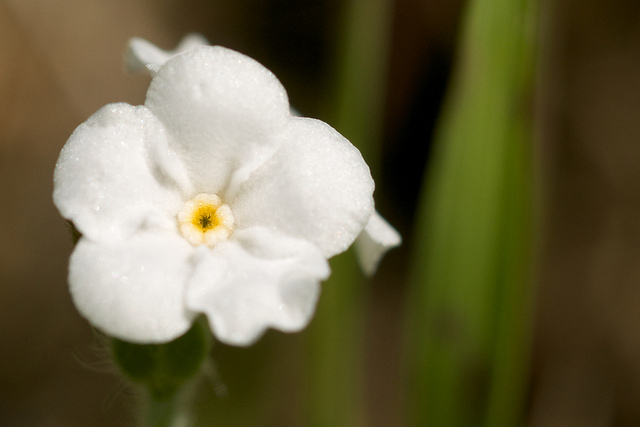Interactions
Plagiobothrys nothofulvus
has many interactions with its surroundings. It serves as food
for many grazing animals including deer (like
Odocoileus hemiounus columbianus), ground squirrels, and
some species of insects, including
Melanoplus devastator, the devastating grasshopper
(Fitch 1948). Many small butterflies are found to drink the
nectar from its white, five-starred flowers. Since the popcorn
flower is an angiosperm it
goes through sexual reproduction. Many insects, such as bumble
bees, help it to cross its pollen with other plants, enabling it to
reproduce.
In more aquatic environments it is known that exotic species of weeds may crowd out the popcorn flowers, often killing them (Amsberry & Meinke 2002). The interactions of the rough popcorn flower and other organisms present in its ecosystem has not yet been well-studied. However, caterpillars and aphids have been observed eating foliage and flowers of the rough popcorn flower, and plants showing evidence of herbivory by deer and small rodents have also been documented. Beetles such as Metritus contractus may use the flowers for breeding platforms, and spiders, including species like Cyclosa conica and Schizocosa mccooki, are often seen hunting in the dense foliage in summer.
Native ctenuchid
moths (Ctenucha) are seen consistently on the plants throughout the
spring and summer, and have been observed obtaining nectar from the
flowers, but the importance of the flower to the moth, or vice
versa, is not known. (Amsberry
&
Meinke 2002). It has also been reported that aquatic turtle species
have been known to feed on the flowers (Fitch 1948).
Home Learn some fun facts about P. nothofulvus!

